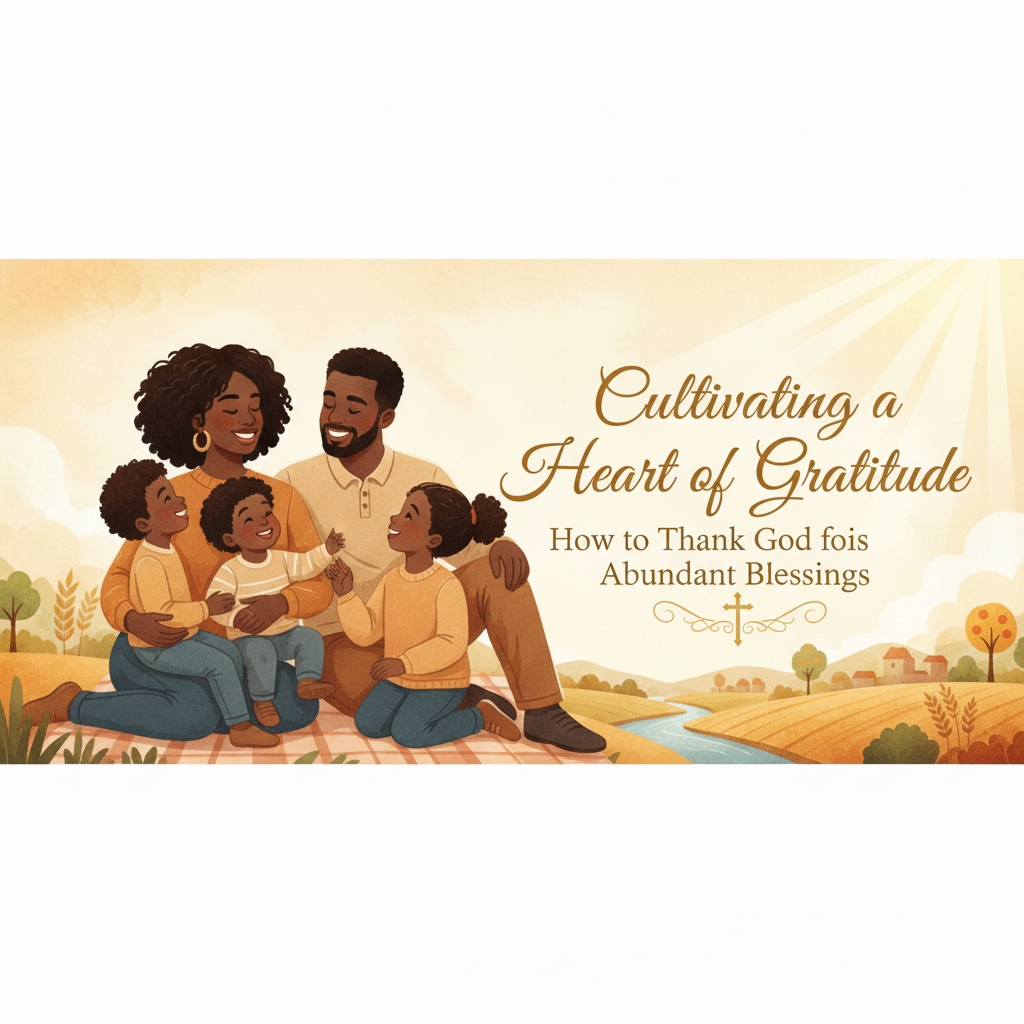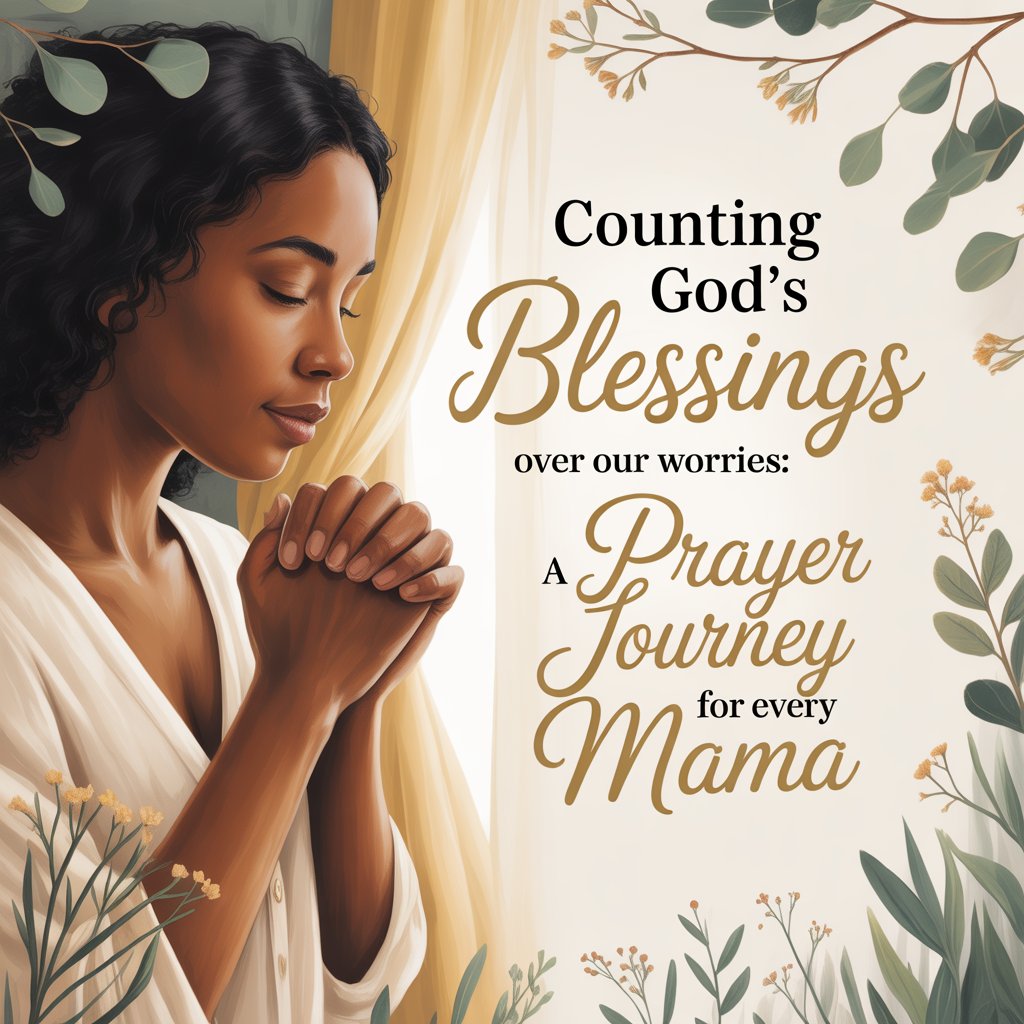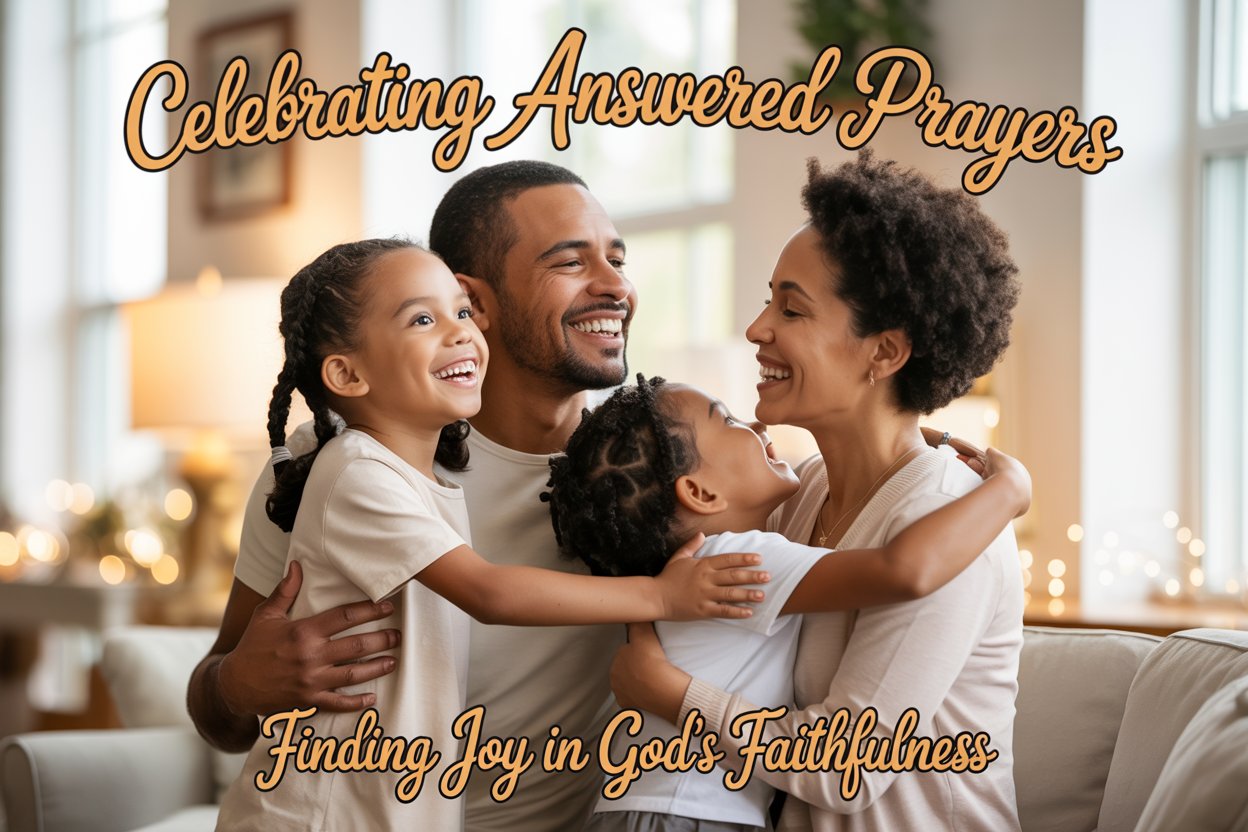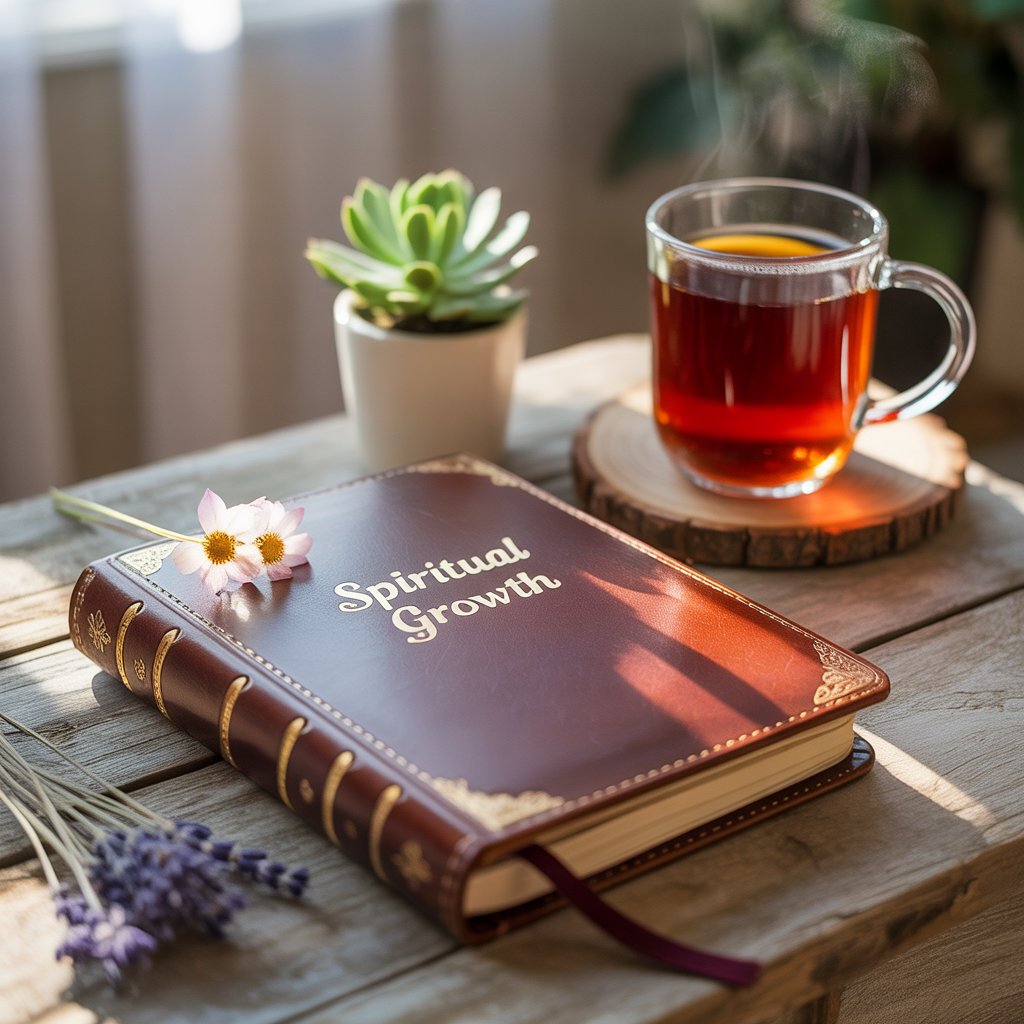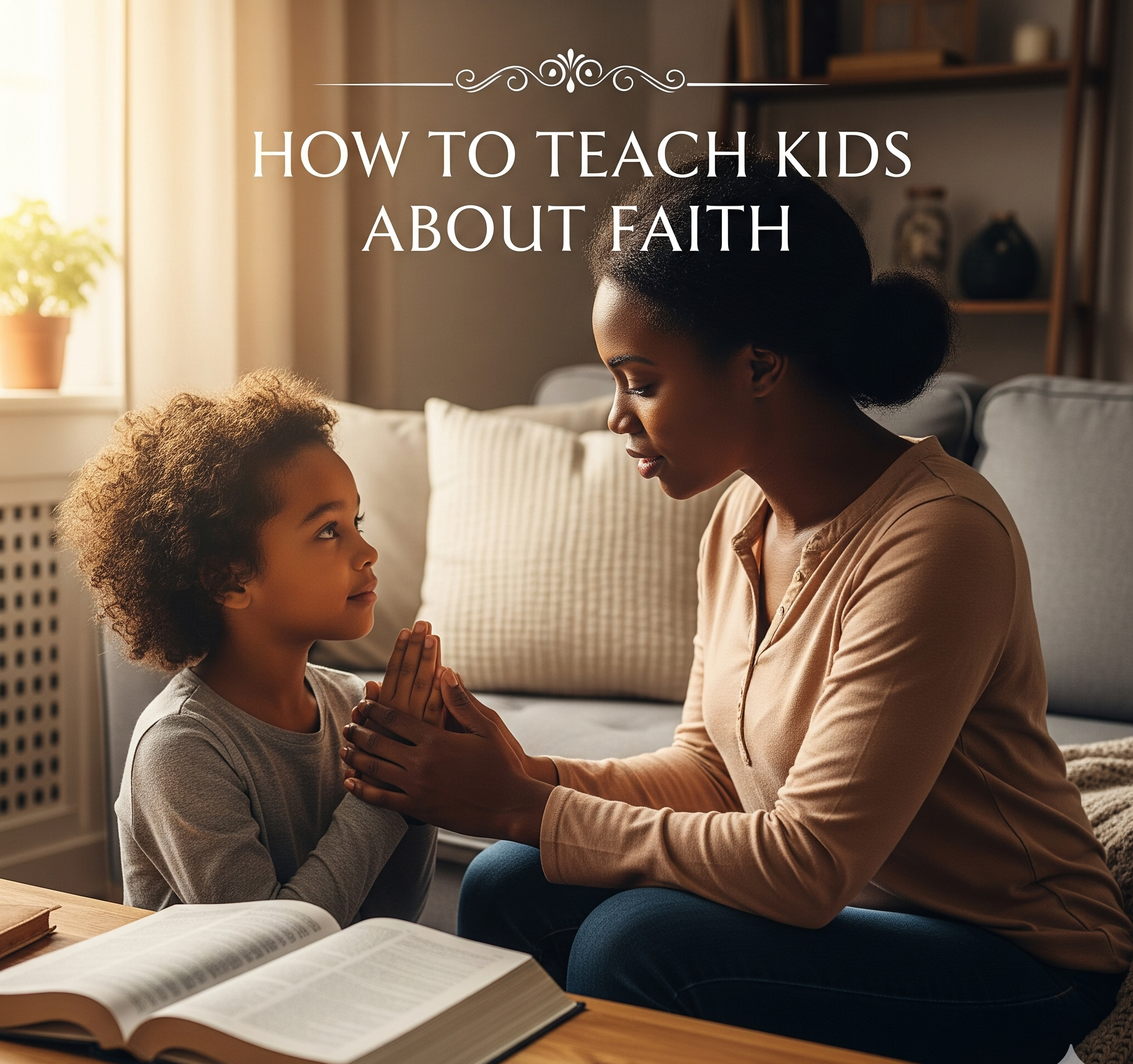When Life Knocks You Down: My Comeback Through Faith
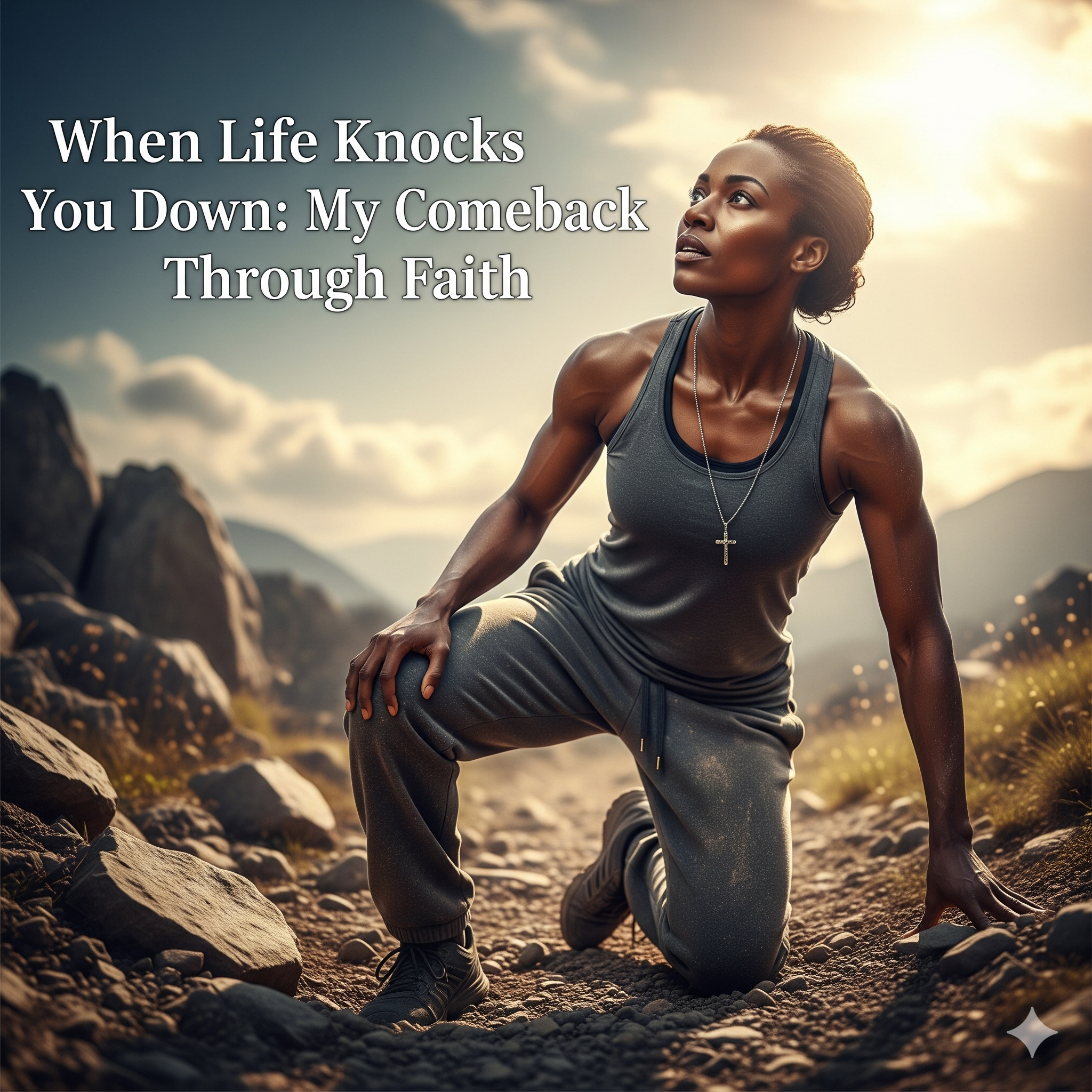
Hey Mama,
This one is deeply personal. I've walked through some valleys that nearly broke me, but God carried me through--and I want to share it with you because if He did it for me, He can do it for you too.
Before I tell you about the storms I've weathered, I want you to know that sharing this isn't easy for me. There's something vulnerable about opening up the deepest wounds of your heart and letting others see the raw places where grief has carved its mark. But I've learned that our testimonies of God's faithfulness in our darkest hours can become lifelines for others who are drowning in their own storms.
I used to think that grief was something you "got over" - that there was a timeline for healing and a finish line where the pain would end completely. I've learned that grief is actually something you grow around, not something you move past. It becomes part of your story, woven into the fabric of who you are, but it doesn't have to define your future or limit your joy.
In just seven years, I faced a level of grief I never imagined:
December 26, 2015 -- The day after Christmas, my brother passed away suddenly. No warning. No time to prepare. Our family was shattered.
That day changed everything about how I understood life's fragility and God's sovereignty. Christmas had always been our family's favorite holiday - a time of gathering, laughter, and making memories that we thought would stretch on forever. In one devastating moment, the holiday season became forever marked by loss and the harsh reality that life can change in an instant.
My brother wasn't just a sibling; he was a friend, a confidant, and someone I thought would be part of my life for decades to come. We had plans, dreams, and conversations we thought we'd finish later. His sudden death taught me that "later" isn't guaranteed and that the people we love are gifts we hold temporarily rather than possessions we own permanently.
The shock of losing him so unexpectedly left our entire family reeling. We didn't know how to navigate holidays, family gatherings, or even ordinary days without his presence. The grief felt suffocating, like a weight pressing down on my chest that made even breathing feel difficult. I found myself angry at God, confused about His plan, and terrified about what other losses might be coming.
May 2016 -- Just five months later, my mom passed away after a long-term illness. I was still grieving my brother when I had to say goodbye to the woman who gave me life.
Losing my mother while still processing the shock of my brother's death felt like emotional overload that my heart wasn't equipped to handle. Unlike my brother's sudden passing, Mom's death came after a prolonged illness that gave us time to prepare - or so we thought. But nothing really prepares you for the moment when the woman who brought you into this world takes her final breath.
Mom had been our family's anchor, the one who kept everyone connected and made sure holidays were special and birthdays were remembered. Losing her meant losing not just a beloved parent but also the person who held our family together. I suddenly found myself in the position of trying to fill roles I felt completely unprepared for while simultaneously grieving the loss of the woman who had taught me how to be strong.
The timing of these losses - so close together - felt particularly cruel. I hadn't finished grieving my brother when I had to begin grieving my mother. The compound grief created a fog of sadness that seemed to settle over every aspect of my life. Simple tasks felt overwhelming, joyful moments felt guilty, and the future felt uncertain and frightening.
During this period, I learned that grief isn't linear or predictable. Some days I felt like I was making progress, accepting the new reality of life without them. Other days, the pain felt fresh and raw, as if the losses had just happened. I had to learn to be patient with myself and understand that healing happens in waves rather than straight lines.
2020 (The Pandemic) -- Four years later, when the world was already turned upside down, my dad was diagnosed with lung cancer in July. By September, he was gone.
Just when I thought I had found my footing after losing my brother and mother, 2020 brought a global pandemic that turned everyone's world upside down. In the midst of worldwide uncertainty, fear, and isolation, our family received the devastating news that Dad had lung cancer.
The pandemic added layers of complexity to an already heartbreaking situation. Hospital visits were restricted, which meant limited time with Dad during his treatment. Family gatherings became dangerous rather than comforting. The normal support systems we might have relied on during such a difficult time were disrupted by social distancing requirements and health concerns.
Watching my father's health decline rapidly while the world dealt with its own crisis felt surreal and overwhelming. He went from diagnosis to death in just two months, leaving us with whiplash from how quickly everything changed. The man who had been our family's provider and protector was suddenly gone, leaving us feeling orphaned and unanchored.
Dad's death during the pandemic meant that even his funeral was different - smaller, more restricted, and somehow less able to provide the closure and community support that funerals typically offer. We were grieving in isolation at a time when we most needed the comfort of extended family and friends. The combination of personal loss and global crisis created a perfect storm of emotional devastation.
2022 Two Years Later -- My sister, who was like my twin--we were only a year apart--lost her battle with a long-term illness. This one hit so hard I felt like I was living in a dream, just waiting to wake up.
My sister's death was the loss that nearly broke me completely. We had been best friends from childhood, sharing secrets, dreams, and the kind of sisterly bond that made us feel like two halves of the same person. Being only a year apart meant we had navigated every stage of life together - childhood, adolescence, young adulthood, marriage, and motherhood.
She had been battling illness for years, but I somehow convinced myself that her strength and determination would pull her through. I prayed desperately for her healing, believing that God wouldn't take her too after everything our family had already endured. Her death felt like the final blow that would surely destroy what was left of our family's foundation.
The grief I felt after losing my sister was different from the others - more personal, more intimate, and somehow more devastating. She knew me in ways that no one else ever would. She shared memories that died with her, understood family dynamics that were unique to our shared experience, and provided a connection to my childhood that could never be replaced.
Losing her felt like losing part of my own identity. So many of my memories included her presence, so many of my future plans had assumed her participation, and so many aspects of my personality had been shaped by our sisterly relationship. I felt lost without her, unsure of who I was supposed to be in a world that no longer included my closest companion.
When she passed, she left behind two children--a young adult daughter and a teenage son. At that moment, my role as "Aunt Jackie" shifted to something much bigger. I had to step up for them while still being strong for my own children and grandchildren.
Suddenly, in the midst of my own devastating grief, I found myself responsible for helping my niece and nephew navigate the most difficult experience of their young lives. They needed stability, guidance, and emotional support at a time when I felt completely depleted and broken myself. The weight of this new responsibility felt overwhelming when I could barely manage my own daily tasks and emotional needs.
Watching these young people grieve their mother while I grieved my sister created a complexity of emotions that I struggled to navigate. I wanted to honor my sister's memory by caring for her children well, but I also needed space to process my own loss. I had to learn how to grieve and provide comfort simultaneously, how to be strong for them while still being honest about my own pain.
This new role also meant making difficult decisions about their futures while still being clouded by grief. There were legal matters to handle, financial decisions to make, and practical arrangements to coordinate - all while trying to maintain some sense of normalcy for children who had lost the most important person in their world.
The Weight I Carried
I can't even describe the pain. I had to be the rock for everyone when all I wanted to do was crawl into bed and make the world stop. I was juggling my grief, my family's needs, and the responsibility of helping my niece and nephew navigate life without their mom.
The pressure of being everyone's source of strength while feeling completely broken inside created an internal tension that felt unsustainable. People looked to me for answers I didn't have, comfort I couldn't provide, and stability I didn't feel. There were days when putting on a brave face for others felt like the hardest thing I'd ever done.
I learned during this season that grief is exhausting in ways that go beyond emotional pain. The physical toll of constant sadness, stress, and responsibility left me feeling depleted and worn down. Simple tasks required enormous effort, decision-making felt overwhelming, and maintaining normal routines felt nearly impossible.
The weight of survivor's guilt also began to press down on me during this time. Why had I been spared when so many beloved family members had died? What was my purpose in living when it felt like everyone I loved was being taken away? These questions haunted my quiet moments and made it difficult to feel grateful for my own life and health.
I also struggled with feeling disconnected from friends and acquaintances who hadn't experienced such profound loss. Their concerns about ordinary life challenges felt trivial compared to what I was facing, and their attempts to comfort me often felt inadequate or misguided. This isolation added another layer of difficulty to an already overwhelming situation.
There were nights I laid my head on the pillow and whispered, "Lord, if one more thing happens, I am going to scream."
Those whispered prayers in the darkness represented the most honest conversations I'd ever had with God. I was beyond trying to sound spiritual or appropriate in my prayers - I was simply pouring out the raw desperation of a heart that felt like it couldn't take any more pain. These midnight conversations became lifelines during my darkest hours.
I was tired. Broken. And honestly scared. After so many premature deaths, I started thinking, Am I next? Will I die early too? That fear was real--but it was a lie from the enemy.
The fear of my own mortality became a constant companion during this season of multiple losses. I found myself hyper-aware of every physical symptom, every ache or pain, wondering if it might be a sign that my time was also running short. This anxiety created additional stress that complicated the grieving process and made it difficult to plan for the future or invest in long-term goals.
I began to understand how trauma can rewire our brains to expect catastrophe and prepare for the worst-case scenario. The pattern of losses in my family had created a mental framework that expected more bad news, more devastating phone calls, and more reasons to grieve. Breaking free from this expectation required intentional effort and spiritual warfare against fear-based thinking.
Sleep became elusive during this period, not just because of emotional pain but because of anxiety about what morning might bring. I found myself checking on family members obsessively, calling more frequently than necessary, and struggling to enjoy peaceful moments because they felt fragile and temporary.
BUT GOD!
Through it all, God held me together. He gave me grace to wake up every morning, to care for my family, to keep functioning when I felt like shutting down. He kept my mind when I felt like I was about to lose it.
The phrase "But God" became my anchor during this season of overwhelming loss. Just when circumstances seemed hopeless, just when my strength was completely depleted, just when I thought I couldn't survive another blow - God showed up with supernatural grace that carried me through.
His faithfulness didn't eliminate the pain or prevent the losses, but it provided strength I didn't possess naturally. There were mornings when I woke up surprised that I had slept, afternoons when I found myself laughing despite the grief, and evenings when peace settled over me even though my circumstances hadn't changed.
God's presence became more real to me during this season of suffering than it had ever been during comfortable times. When I had nowhere else to turn and no human solution to offer, I discovered that He was enough. His comfort was sufficient, His strength was adequate, and His love was constant even when everything else felt unstable and uncertain.
I learned that God doesn't always protect us from pain, but He always provides grace to endure it. He doesn't always prevent loss, but He always offers comfort in the midst of it. He doesn't always answer our prayers the way we hope, but He always remains faithful to His character and His promises.
When fear crept in, God gave me His Word. One scripture became my lifeline:
Psalm 118:17 -- "I shall not die, but live, and declare the works of the Lord."
This verse became my daily declaration of faith over fear, hope over despair, and life over death. When anxiety about my own mortality threatened to overwhelm me, I would speak this scripture out loud as a reminder that God had plans for my life that hadn't been fulfilled yet.
I started speaking that over myself every day: "I shall live and not die. I will declare the works of the Lord."
These daily declarations felt like warfare against the spirit of fear that had been trying to establish itself in my heart and mind. Speaking God's Word out loud created a shift in my mental and spiritual atmosphere, replacing anxiety with peace and hopelessness with expectation.
That declaration broke the fear. Little by little, grief loosened its grip on me. I still miss them every single day, but I'm not stuck. I've learned to practice gratitude for what remains--my husband, my children, my grandchildren, my health, my purpose.
The transformation wasn't instant or complete, but it was real and sustainable. As I continued to speak life over myself and declare God's goodness despite my circumstances, I began to notice small shifts in my perspective and emotional state. The heavy cloud of depression began to lift, and glimpses of joy started breaking through the grief.
I learned that gratitude is a choice that can coexist with grief. I could miss my departed family members while still being thankful for the family members who remained. I could grieve what I had lost while still appreciating what I still possessed. This both/and approach to emotions felt more honest and sustainable than trying to force positivity or deny the reality of my pain.
Practicing gratitude didn't dishonor the memory of those I had lost; instead, it honored the life they would have wanted me to live. My sister wouldn't have wanted me to remain trapped in sadness forever. My parents would have wanted me to find joy again. My brother would have encouraged me to keep living fully and purposefully.
My New Normal
Grief changes you, Mama. It makes you see life differently. I've learned to slow down, to appreciate the little things, and to live fully in every moment. Because life is precious, and God is still good--even when life doesn't make sense.
The woman I am today is different from the woman I was before these losses, and I've learned to accept and even appreciate this transformation. Grief has made me more compassionate, more aware of others' pain, and more intentional about expressing love to the people who are still in my life.
I've learned to hold relationships with open hands, appreciating them deeply while acknowledging their temporary nature. This perspective has made me more present in conversations, more intentional about creating memories, and more willing to have difficult but important conversations rather than assuming there will always be time later.
My priorities have shifted significantly since experiencing these losses. Things that used to feel urgent now seem less important, while moments of connection and expressions of love have moved to the top of my priority list. I'm less concerned with perfect housekeeping and more focused on meaningful family time. I'm less worried about professional achievements and more invested in spiritual growth and legacy-building.
The fragility of life has become a constant awareness that influences how I spend my time and energy. I'm more likely to say yes to family gatherings, more intentional about capturing memories, and more willing to have grace for myself and others when life doesn't go according to plan.
I've also developed a deeper appreciation for the ordinary moments that I used to take for granted. Sunday dinners with family, phone calls with friends, quiet evenings at home, and routine conversations have all taken on new significance because I understand how quickly these simple pleasures can be taken away.
This new perspective has also affected my relationship with God in profound ways. I'm more honest in my prayers, more dependent on His strength, and more amazed by His faithfulness. The theological questions I used to struggle with seem less important than the experiential knowledge of His presence during suffering.
Finding Purpose in the Pain

One of the most significant aspects of my healing journey has been discovering how God can use our deepest pain for His purposes and others' benefit. The experiences that nearly destroyed me have become tools for ministering to others who are walking through similar valleys.
When I meet someone who has lost a family member, I can offer understanding that goes beyond sympathy to true empathy. I know what it feels like to plan funerals, to handle estate matters while grieving, and to navigate holidays without beloved family members. This experiential knowledge allows me to provide practical comfort and genuine hope.
My story has become a testimony of God's faithfulness that encourages others who are questioning whether they can survive their own losses. When people see that I not only survived but have found joy again, it provides evidence that healing is possible even after devastating loss.
I've also gained a deeper understanding of the ministry of presence - simply being with people in their pain without trying to fix it or explain it away. Some of the most meaningful comfort I received during my darkest days came from people who just sat with me in silence, brought meals without being asked, or sent simple text messages letting me know they were thinking of me.
This experience has made me more sensitive to others' grief and more intentional about reaching out to people who are suffering. I'm more likely to send sympathy cards, attend funerals, and check on people months after their loss when the initial surge of support has faded but the grief is still very real.
The Ongoing Journey
Healing from multiple losses isn't a destination but an ongoing journey that requires patience, grace, and realistic expectations. There are still difficult days when grief feels fresh, holiday seasons that require intentional navigation, and unexpected triggers that can bring sudden tears.
I've learned to prepare for predictable difficult times like anniversaries of deaths, birthdays of departed family members, and holidays that feel incomplete without their presence. Having strategies for these challenging times - whether that's planning special remembrance activities, scheduling time with supportive friends, or simply acknowledging that these days will be hard - helps me navigate them with less anxiety and more peace.
I've also learned to be gentle with myself during unexpected difficult moments. Grief can be triggered by seemingly random things - a song on the radio, a familiar scent, or a phrase that reminds me of someone I've lost. Instead of being frustrated by these emotional responses, I've learned to see them as evidence of love that continues beyond death.
The healing process has required me to develop new coping strategies and support systems. Regular counseling has been invaluable for processing complex emotions and developing healthy ways to manage grief. Connecting with other people who have experienced significant loss has provided understanding and encouragement that well-meaning but inexperienced friends couldn't offer.
I've also had to learn new ways to honor the memory of my departed family members while still moving forward with my own life. This includes continuing traditions they would have enjoyed, sharing stories about them with younger family members, and making decisions based on values they helped instill in me.
For the Mama Who's Hurting

If you've lost someone, I want you to know this:
It's okay to feel broken. God can handle your tears.
Your pain is not a sign of weak faith or insufficient trust in God. Jesus himself wept at Lazarus's tomb even though He knew He was about to raise him from the dead. Grief is a natural response to loss, and God doesn't expect you to pretend you're fine when you're not. He invites you to bring your broken heart to Him and trust that He can handle whatever emotions you're experiencing.
Don't let anyone pressure you to "get over" your grief according to their timeline or expectations. Healing happens at different rates for different people, and there's no shame in taking the time you need to process your loss and adjust to life without your loved one. God is patient with your healing process, and you can be patient with yourself too.
You're not alone. He is close to the brokenhearted (Psalm 34:18).
Even when grief makes you feel isolated and misunderstood, God's presence is especially near during seasons of suffering. He sees every tear, understands every sleepless night, and cares about every aspect of your pain. You may feel alone, but you are never abandoned by the One who loves you most.
Fear is a liar. Speak God's Word over your life.
When loss creates anxiety about future losses or fear about your own mortality, remember that fear is not from God. He has given you a spirit of power, love, and sound mind (2 Timothy 1:7). Combat fearful thoughts with declarations of faith based on God's promises about your life and future.
You still have purpose. Your story is not over.
Even when loss makes you question whether life is worth living or whether you have anything meaningful to contribute, remember that God still has plans for your life (Jeremiah 29:11). Your experiences, including your grief, can become tools for ministering to others and bringing glory to God in ways you may not be able to imagine right now.
And when you feel like you can't go on? Just whisper these two words that carried me through: "But God."
When your strength is depleted, when your faith feels shaken, when your hope seems gone - remember that God's power is made perfect in weakness (2 Corinthians 12:9). These two words acknowledge that your human resources are insufficient while declaring that God's resources are unlimited.
With love,
Jackie
Scriptures That Sustained Me
Psalm 118:17 -- "I shall not die, but live, and declare the works of the Lord."
This verse became my daily declaration against fear and despair. When anxiety about my own mortality tried to overwhelm me, I would speak this scripture as a reminder that God still had purposes for my life that hadn't been fulfilled yet.
Isaiah 41:10 -- "Fear not, for I am with you; be not dismayed, for I am your God; I will strengthen you, I will help you, I will uphold you with my righteous right hand."
During moments when I felt too weak to continue, this verse reminded me that God's strength was available to supplement my inadequate human resources. His promise to strengthen, help, and uphold me became tangible during my weakest moments.
Psalm 34:18 -- "The Lord is close to the brokenhearted and saves those who are crushed in spirit."
This scripture provided comfort during my darkest days by assuring me that God wasn't distant or indifferent to my pain. His special nearness to those who are brokenhearted became a source of hope when nothing else could reach my grieving heart.
Prayer Prompt
Lord, thank You for being my strength in the darkest seasons. Thank You for keeping my mind and my heart when I felt like I couldn't go on. Help me trust You when life doesn't make sense. I declare that I shall live and not die, and I will tell the world of Your goodness. Give me grace to comfort others with the comfort I have received from You. Help me honor the memory of those I've lost while still embracing the life You have given me. Turn my mourning into dancing and my grief into a testimony of Your faithfulness. Amen.
Declaration
Say this out loud: "I will not fear. I shall live and not die. I will fulfill God's purpose for my life. My story is not over. God is faithful even when life doesn't make sense. I choose hope over despair, faith over fear, and life over death. My pain has purpose, and my testimony will encourage others."

